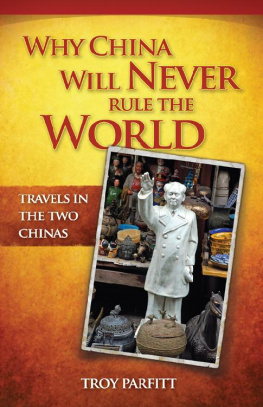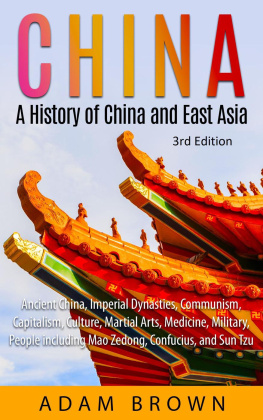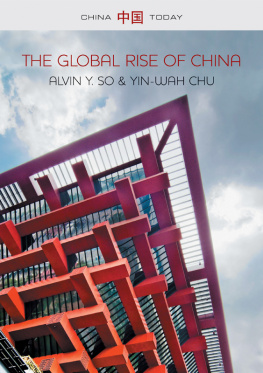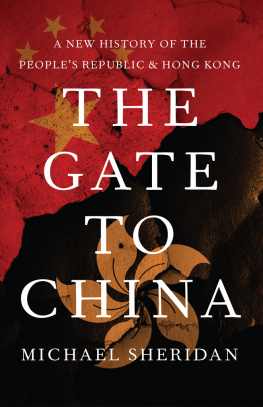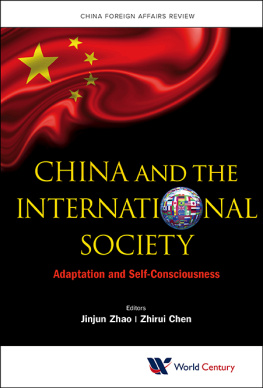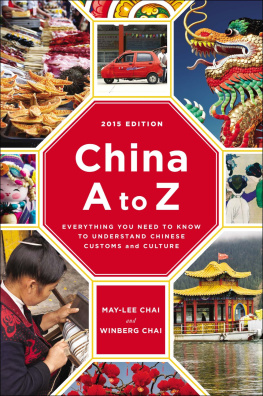E PILOGUE
I broke the pledge I had made to myself and returned to China the following summer for one week in order to visit Meizhen. From Hong Kong I flew to Nanning, where I touched down on a rain-drenched airstrip one muggy, grey morning. It dumped rain every day, in fact, permitting me to do very little out of doors. During the mornings and afternoons, I would occupy a corner table of some coffee shop and read. At night, I would meet Meizhen for dinner and a movie. I spent the majority of my time holed up in my hotel room watching the European Cup and CCTV news.
This was only a week after the Sichuan earthquake, an event so powerful that it was felt in 10 other countries. Chinese television was saturated with images of searching helicopters, toiling soldiers, slogan-chanting rescue workers, and concerned officials addressing crowds with megaphones. The clips were arranged in a seemingly endless loop. I must have seen one of a dazed, stretcher-bound, young girl being whisked to safety by a dozen soldiers at least 30 times. Only twice did I see shots of actual wreckage, and these were extreme close-ups and only shown for an instant. There were no wide-angle pictures or views of devastated towns and no interviews with the bereaved. I knew the situation had to be dire.
The most unsettling thing I saw was a piece on some hospital near Chengdu. A frowzled physician was in an ill-lit ward filled with injured children, most of which were sobbing pitiably. However, their open and evidently infected wounds were not being tended to. To be sure, there wasnt a nurse or a bandage in sight. Rather, the doctor was offhandedly leading the camera crew around to film the victims. Look at this one, he said casually, pointing to a young girl. Her feet will have to come off. What a shame. Shes so cute. He then lifted up one of the girls mashed and discoloured appendages before letting it fall. The girl shrieked and I shuddered. After the amputation, the girl was interviewed. She wailed hysterically and kept stammering how she had seen three of her classmates die. The female reporter kept repeating, Meiyou guanxi, or Its okay. Dont worry about it, in an affected, upbeat tone. This caused the girl to cry even louder. The reporter turned to the doctor and smiled. Do you think she might experience depression? she asked. Its possible, he answered.
Meanwhile, on the streets of Nanning, vendors were making a killing hawking I Love China bandanas, T-shirts, and flags, which everyone seemed to be buying or sporting. This was in connection with the upcoming Olympics. I enjoyed my time with Meizhen, but at the same time, I couldnt wait to leave.
Back in Taiwan, I read an article in The Guardian about how, behind the massive reconstruction efforts, the Chinese government was doing its utmost to silence the parents of children killed in the disaster because they were asking difficult questions. Chiefly, they wanted to know why 7,000 classrooms had collapsed and why, in some areas, schools were reduced to heaps of powder and folded metal while other buildings nearby remained largely intact.
Initially, the government allowed for such questions, not to mention complaints, protests, and even investigations into corruption and the resultant substandard construction. But when the movement got to be too large, cadres in the capital clamped down. Police were ordered in to guard demolished sites, bulldoze all the rubble, break up demonstrations, and warn vocal mothers and fathers not to talk to foreign reporters or even each other. When angry citizens attempted to buy train tickets to Beijing to protest, they were stopped by members of the Public Security Bureau. Other officials pressured parents into signing a document promising to abide by the law and maintain social order. If they didnt, they were told, they wouldnt receive their compensation packages. Parents were isolated and told that everyone else had signed; if they didnt comply, they would be the only ones denied the government package. Thereafter, citizens found not to be maintaining social order in regard to this issue were sent to prison or re-education camps, or so said a Hong-Kong-based human rights group.
Reading this article in a coffee shop in downtown Taipei, I was reminded once more how progressive Taiwan was in comparison with China. In addition to the three English-language dailies, I could easily buy a copy of the International Herald Tribune or just about every major news magazine in existence.
Still, a free press wasnt enough to sustain me, and I came to the realization that I had been living in Chinese society for far too long. It was indeed a social order built upon a foundation of sand, and this was especially true for me. As an alien resident without a Taiwanese wife or child, I had virtually nothing in the way of legal recourse and was subject to the whims and fancies of anyone who might happen to take issue with me. But what bothered me more was that I would never be accepted as just another person; I would always be an outsider.
Such thoughts and frustrations finally congealed into a decision to move back to Canada to take a teaching position at a university. I spent the first few months of my homecoming in a state of more or less constant reverse culture shock.
It was interesting to view the two Chinas from such a distance after having been immersed in the culture for over a decade. The first related news piece I saw was on the CBC (Canadian Broadcasting Corporation) and came in the form of the the misplay of the week award on a Sunday news show. It went to the people of Taiwan for venturing outside during a typhoon. A shaky camera showed people frantically gripping sign posts so as not to become human projectiles in the midst of ferocious winds and sideways sheets of rain. The following weeks misplay nod went to China. The Xinhua News Agency had reported a successful space mission replete with astronaut discourse even though the astronauts were actually still on the ground. Separatist Uighurs made headlines when they allegedly attacked law-abiding Han citizens in Xinjiang, although the Uighurs insisted they were protesting peacefully when they were fired on by police. And, back to Taiwan, Chen Shui-bian, the man who vowed to end a lifetime of Nationalist Party corruption, was sentenced to life in prison for graft.
Canadas national newspaper, The Globe and Mail, reported that the Canadian prime minister, Stephen Harper, was rebuked during a trip to Beijing for not having visited China sooner. In a side room in the Great Hall of the People, Harper was scolded by Chinese premier Wen Jiabao, who said, Five years is too long a time for China-Canada relations and thats why there are comments in the media that your visit is one that should have taken place earlier. Of course, those comments in the media (read: the Xinhua News Agency) were ones supplied by Wen Jiabaos government. Harper had angered the Middle Kingdom by meeting with the Dalai Lama (an honourary citizen of Canada), not attending the Beijing games, and declaring he would not sell out on human rights when it came to China. For showing a bit of backbone, the Western leader was chastised by The Globe and Mail, which preached that he possessed a simplistic world view. Incidentally, my first trip to Beijing coincided with the previous visit by a Canadian prime minister to that city. When I tried to snap a photo of a guard standing in front of a Canadian flag, an undercover police officer grabbed me roughly by the arm and told me to put my camera away and keep walking.
On an afternoon talk show, I watched a Canadian political commentator interviewing an ethnically Chinese author whod written a biography about Chiang Kai-shek that cast the former dictator in a favourable light. The writer indicated that negative assessments of the generalissimo had been overblown. Chiang

